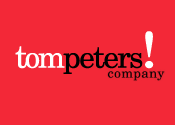With the world of work these days in constant turmoil, individuals must have their own coping strategies. Here are five to keep on your agenda.
- Know Yourself: Stay in touch with what you are really good at. Take surveys and, above all, get others to tell you what they see, both your strengths and weaknesses. Although it is always good to work on your weaknesses, don’t forget your strengths make up your present Brand. They give you a strong platform to build on. Developing mastery in your areas of strength means you can stand out in your profession, which is always a good insurance for the future.
- Be on the lookout for different future possibilities: Don’t assume that the future is going to be just like the past +or- a bit. Every now and then, there will be a game changer in your industry, like an Uber or an Air BNB. Make sure you stay tuned in to what’s going on in your industry and profession, by joining networks, social media groups, blogs and magazine subscriptions. Keep talking and asking.
- Set up your own Personal University: There is a wealth of knowledge and experience out there. What we all need is our own network of contacts that can keep us on track. Maybe you need subject matter experts who can share their wisdom, maybe you need someone to be a coach or mentor, maybe you need someone to hold us to our commitments. Work out what help you need, and ask for it!
- Use work for development: Training courses are important, but your work place is where you get serious about using new ideas. Every work assignment you do can be a development experience if you do it in a way that stretches you. Reframe your project slightly so that you end up doing it differently, or simply reflect on things as they happen. There’s a world of experience out there – exploit it.
- Celebrate and keep moving: Please do pat yourself on the back when you’ve reached a development milestone – you may even have a member of your personal university to help with that. But don’t forget, development is a mindset, not a destination. Once you reach a new level, you can see what else there is to know.
Watch out for new material on this subject soon and sign up to get on our mailing list here.

